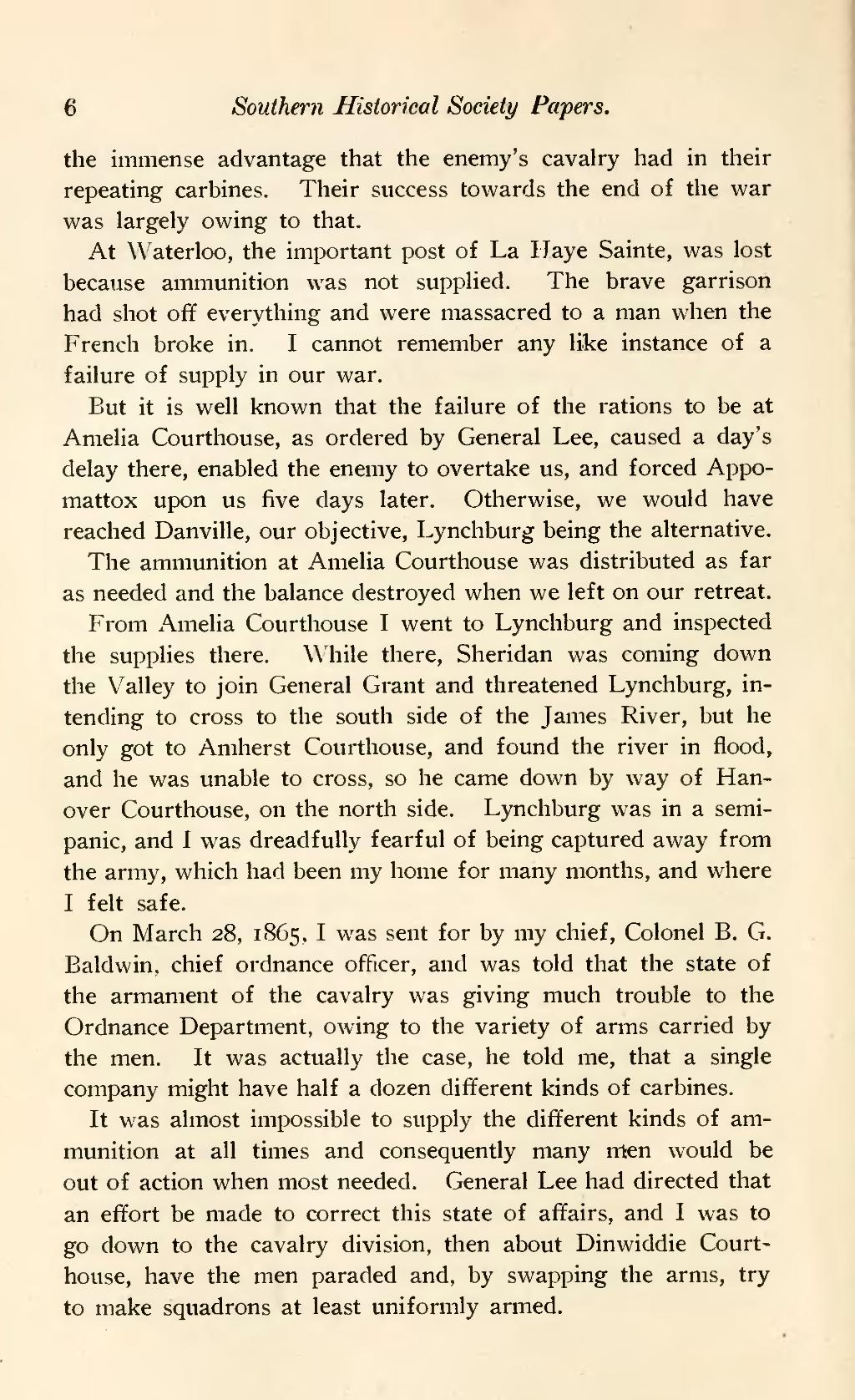the immense advantage that the enemy's cavalry had in their repeating carbines. Their success towards the end of the war was largely owing to that.
At Waterloo, the important post of La Haye Sainte, was lost because ammunition was not supplied. The brave garrison had shot off everything and were massacred to a man when the French broke in. I cannot remember any like instance of a failure of supply in our war.
But it is well known that the failure of the rations to be at Amelia Courthouse, as ordered by General Lee, caused a day's delay there, enabled the enemy to overtake us, and forced Appomattox upon us five days later. Otherwise, we would have reached Danville, our objective, Lynchburg being the alternative.
The ammunition at Amelia Courthouse was distributed as far as needed and the balance destroyed when we left on our retreat.
From Amelia Courthouse I went to Lynchburg and inspected the supplies there. While there, Sheridan was coming down the Valley to join General Grant and threatened Lynchburg, intending to cross to the south side of the James River, but he only got to Amherst Courthouse, and found the river in flood, and he was unable to cross, so he came down by way of Hanover Courthouse, on the north side. Lynchburg was in a semi-panic, and I was dreadfully fearful of being captured away from the army, which had been my home for many months, and where I felt safe.
On March 28, 1865, I was sent for by my chief, Colonel B. G. Baldwin, chief ordnance officer, and was told that the state of the armament of the cavalry was giving much trouble to the Ordnance Department, owing to the variety of arms carried by the men. It was actually the case, he told me, that a single company might have half a dozen different kinds of carbines.
It was almost impossible to supply the different kinds of ammunition at all times and consequently many men would be out of action when most needed. General Lee had directed that an effort be made to correct this state of affairs, and I was to go down to the cavalry division, then about Dinwiddie Courthouse, have the men paraded and, by swapping the arms, try to make squadrons at least uniformly armed.
